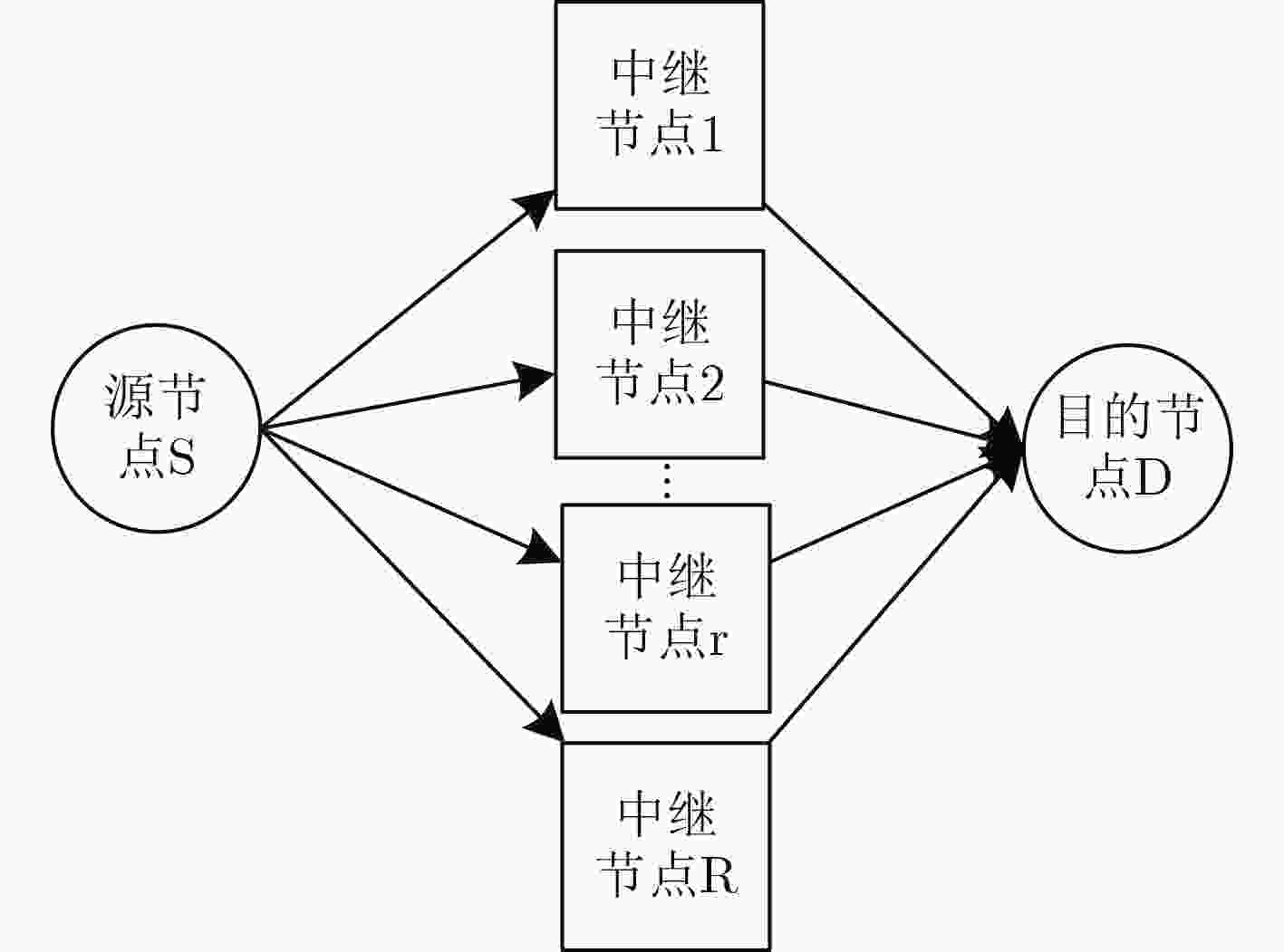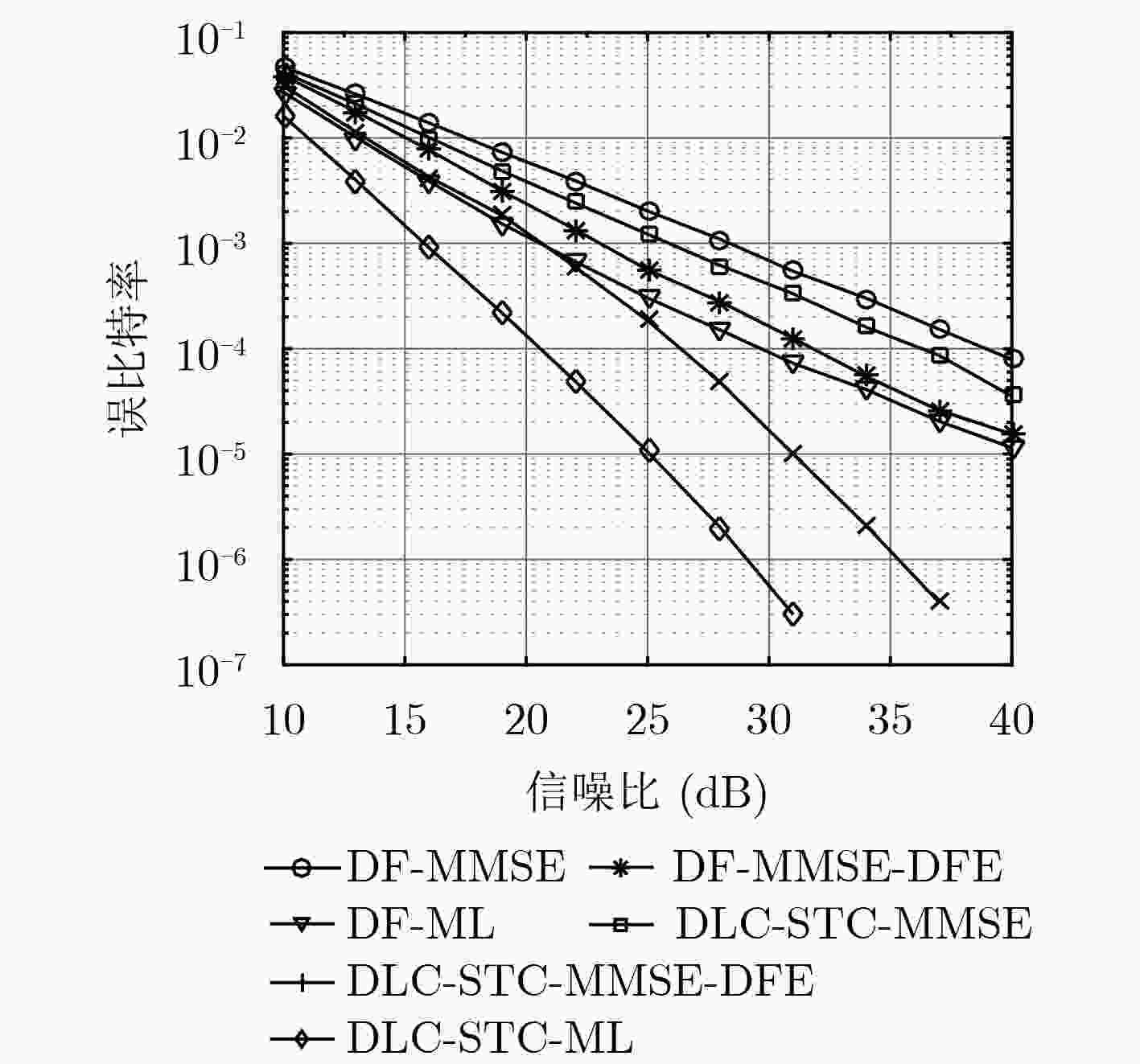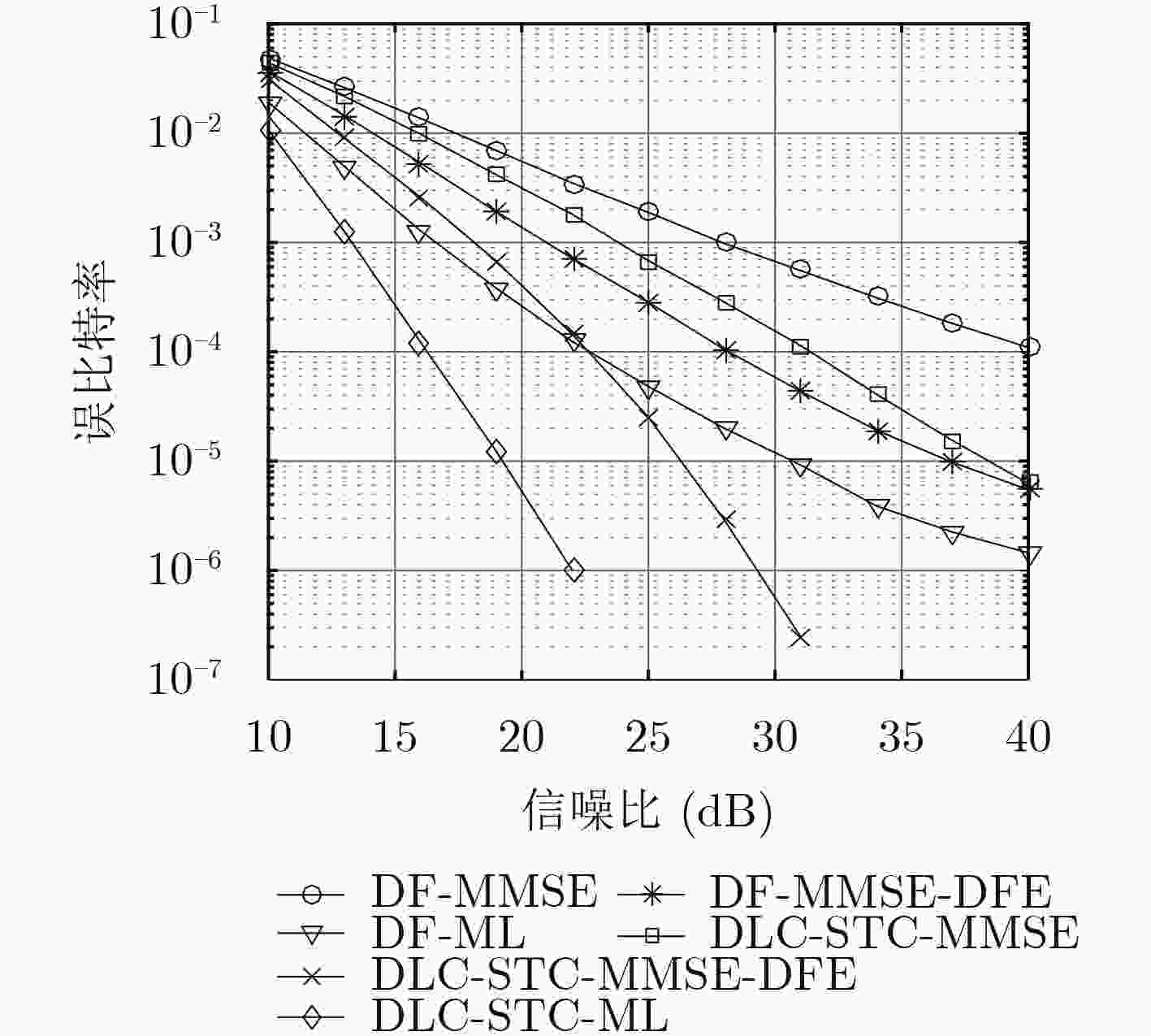Diversity Gain of Distributed Linear Convolutive Space-time Code on Fast Fading Rayleigh Channels
-
摘要:
在无线中继网络中,中继节点间的随机传输延迟将导致显著的性能下降。因此,针对慢衰落瑞利信道提出可容忍随机时延的分布式线性卷积空时码(DLC-STC),但该类空时码在快衰落信道下的分集性能尚未明确。该文从理论上证明了DLC-STC在快衰落瑞利信道下的分集增益。分析表明,DLC-STC虽然最初是在慢衰落信道下被提出的,但它在快衰落瑞利信道下通过利用最大似然(ML)接收机,仍可获得满异步协作分集增益,仿真结果验证了该理论分析,仿真结果同时表明:在快衰落瑞利信道下,DLC-STC采用MMSE-DFE接收机能够获得与ML接收机相同的分集增益。
-
关键词:
- 快衰落瑞利信道 /
- 分布式线性卷积空时码 /
- 分集增益
Abstract:In wireless relay networks, random transmission delays among relay nodes will lead to substantial performance degradation, for which delay-tolerant Distributed Linear Convolutive Space-Time Code (DLC-STC) is proposed. However, its diversity gain on fast fading Rayleigh channels is not clear. This paper analyzes the diversity gain of the DLC-STC on fast fading Rayleigh channels. It is shown that the DLC-STC can achieve full asynchronous cooperative diversity order with Maximum Likelihood (ML) receivers on fast fading Rayleigh channels, although it is originally proposed for slow fading channels. The numerical results verify the theoretical analysis and show that MMSE-DFE receivers, can collect the same diversity order as ML receivers on fast fading Rayleigh channels.
-
OLIVO E E B, OSORIO D P M, ALVES H, et al. An adaptive transmission scheme for cognitive decode-and-forward relaying networks: Half duplex, full duplex, or no cooperation[J]. IEEE Transactions on Wireless Communications, 2016, 15(8): 5586–5602. doi: 10.1109/TWC.2016.2562109 LI Qunwei and VARSHNEY P K. Resource allocation and outage analysis for an adaptive cognitive two-way relay network[J]. IEEE Transactions on Wireless Communications, 2017, 16(7): 4727–4737. doi: 10.1109/TWC.2017.2702170 ZHONG Fuli, XIA Xianggen, LI Hui, et al. Distributed linear convolutional space-time coding for two-hop full-duplex relay 2×2×2 cooperative communication networks[J]. IEEE Transactions on Wireless Communications, 2018, 17(5): 257–286. doi: 10.1109/TWC.2018.2797914 LIU Yi, XIA Xianggen, ZHANG Zhiqiang, et al. Distributed space-time coding based on the self-coding of RLI for full-duplex two-way relay cooperative networks[J]. IEEE Transactions on Signal Processing, 2017, 65(12): 3036–3047. doi: 10.1109/TSP.2017.2675861 PENG Tong, and DE LAMARE R C. Adaptive buffer-aided distributed space-time coding for cooperative wireless networks[J]. IEEE Transactions on Communications, 2016, 64(5): 1888–1900. doi: 10.1109/TCOMM.2016.2544934 NWANEKEZIE N, OWOJAIYE G, and SUN Yichuang. Implementing differential distributed orthogonal space time block coding using coefficient vectors[C]. 2016 IEEE Wireless Communications and Networking Conference, Chennai, India, 2016: 1–6. GONG Fengkui, LI Guo, GE Jianhua, et al. Distributed concatenated recursive alamouti-circulant STBC for two-way multi-relay networks[J]. IEEE Transactions on Communications, 2016, 64(8): 3262–3274. doi: 10.1109/TCOMM.2016.2589269 LI Yabo and XIA Xianggen. A family of distributed space-time Trellis codes with asynchronous cooperative diversity[J]. IEEE Transactions on Communications, 2007, 55(4): 790–800. doi: 10.1109/TCOMM.2007.894117 SHANG Yue and XIA Xianggen. Shift-full-rank matrices and applications in space-time trellis codes for relay networks with asynchronous cooperative diversity[J]. IEEE Transactions on Information Theory, 2006, 52(7): 3153–3167. doi: 10.1109/TIT.2006.876222 SHANG Yue and XIA Xianggen. Limited-shift-full-rank matrices with applications in asynchronous cooperative communications[J]. IEEE Transactions on Information Theory, 2007, 53(11): 4119–4126. doi: 10.1109/TIT.2007.907510 WANG Huiming, XIA Xianggen, YIN Qinye, et al. A family of space-time block codes achieving full diversity with linear receivers[J]. IEEE Transactions on Communications, 2009, 57(12): 3607–3617. doi: 10.1109/TCOMM.2009.12.080477 SHANG Yue and XIA Xianggen. Space–time block codes achieving full diversity with linear receivers[J]. IEEE Transactions on Information Theory, 2008, 54(10): 4528–4547. doi: 10.1109/TIT.2008.928986 GUO Xiaoyong and XIA Xianggen. A distributed space-time coding in asynchronous wireless relay networks[J]. IEEE Transactions on Wireless Communications, 2008, 7(5): 1812–1816. doi: 10.1109/TWC.2008.070042 GUO Xiaoyong and XIA Xianggen. Distributed linear convolutive space-time codes for asynchronous cooperative communication networks[J]. IEEE Transactions on Wireless Communications, 2008, 7(5): 1857–1861. doi: 10.1109/TWC.2008.070753 LIU Yi, XIA Xianggen, and ZHANG Hailin. Distributed space-time coding for full-duplex asynchronous cooperative communications[J]. IEEE Transactions on Wireless Communications, 2012, 11(7): 2680–2688. doi: 10.1109/TWC.2012.060212.112214 LIU Yi, XIA Xianggen, and ZHANG Hailin. Distributed linear convolutional space-time coding for two-relay full-duplex asynchronous cooperative networks[J]. IEEE Transactions on Wireless Communications, 2013, 12(12): 6406–6417. doi: 10.1109/TWC.2013.102313.130541 HAMMONS A R and EI GAMAL H. On the theory of space-time codes for PSK modulation[J]. IEEE Transactions on Information Theory, 2000, 46(2): 524–542. doi: 10.1109/18.825816 TAROKH V, SESHADRI N, and CALDERBANK A R. Space–time codes for high data rate wireless communication: Performance criterion and code construction[J]. IEEE Transactions on Information Theory, 1998, 44(2): 744–765. doi: 10.1109/18.661517 WANG Huiming, XIA Xianggen, and YIN Qinye. Computationally efficient equalization for asynchronous cooperative communications with multiple frequency offsets[J]. IEEE Transactions on Wireless Communications, 2009, 8(2): 648–655. doi: 10.1109/TWC.2009.071389 -






 下载:
下载:




 下载:
下载:
